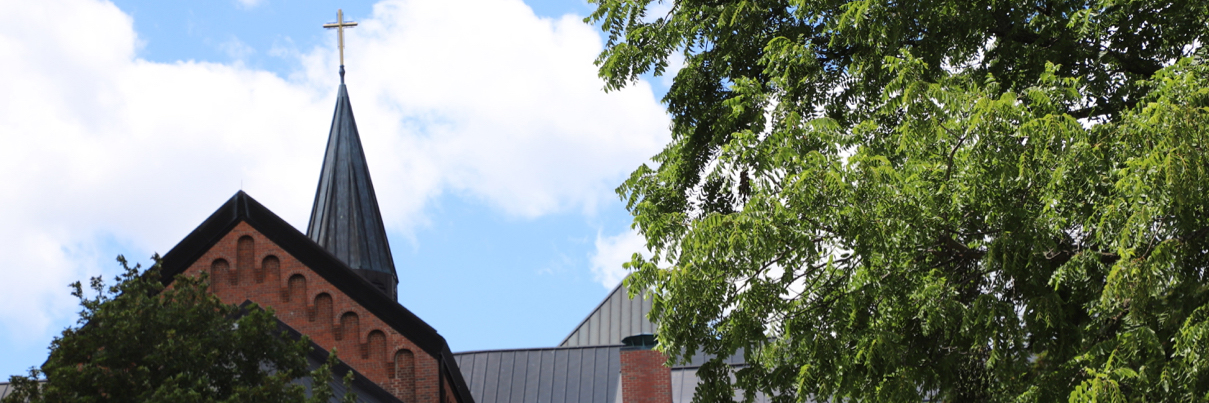
Calling Upon the Saints
There is a great difference between being given a name at birth by one’s parents and consciously choosing a name for oneself and embracing its significance. The usual custom is to submit three names to the abbot in preparation for profession. It is a monastic custom for a novice to receive a new name when he vows conversatio, stability and obedience. The purpose of assuming a new name is to reinforce the monk’s commitment to his new way of life. The monastic community is then built upon men calling upon daily intercession of many holy saints.
Not the Iscariot
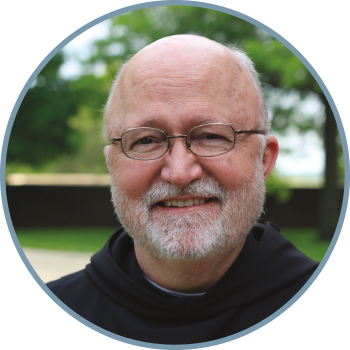
Jude was my confirmation name. No one ever called me that, but it was familiar by the time I entered the monastery. As a teenager, I figured that the Patron of Impossible Cases would safeguard me even in extreme circumstances. That still seemed valid as a monk—if less motivated by teen angst. My first thought: “Can I tolerate being called ‘Jude’ my whole life?” Jude is from Judah, patriarch and human ancestor of Jesus. Judas (the Latinized form) was an apostle, a brother of the Lord, a scriptural author—and the Lord’s betrayer. Not exactly a model, that last one, but sort of an admission that I have turned away from the Lord on occasion. But I also know that under the protection of Jude—“not the Iscariot,” as John’s Gospel says—I can return to the Lord for pardon and peace whenever I need to.
– Br. Jude Person, OSB
Pronunciation Guide
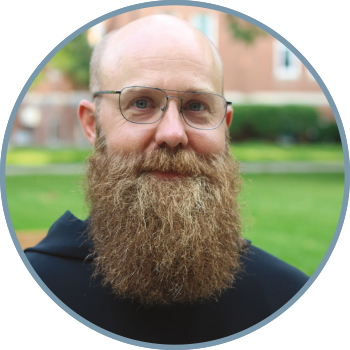 “Think of the machine that gives you money, ATM.” That’s what I tell people how to begin pronouncing my name correctly. It’s an unusual name for sure, however, its meaning is much more familiar: Stephen. It is a classic French name, shared by many saints and famous people. I took the name in honor of my father who passed away more than 18 years ago (who is of French-Canadian descent) and to take as a patron St. Stephen the Protomartyr, the first martyr of the Church. Our patrons help teach us how to live out our monastic lives; St. Stephen, teaches me to live a life of charity (he was a deacon), live a life of preaching the truth, and of radical forgiveness. St. Stephen, pray for us.
“Think of the machine that gives you money, ATM.” That’s what I tell people how to begin pronouncing my name correctly. It’s an unusual name for sure, however, its meaning is much more familiar: Stephen. It is a classic French name, shared by many saints and famous people. I took the name in honor of my father who passed away more than 18 years ago (who is of French-Canadian descent) and to take as a patron St. Stephen the Protomartyr, the first martyr of the Church. Our patrons help teach us how to live out our monastic lives; St. Stephen, teaches me to live a life of charity (he was a deacon), live a life of preaching the truth, and of radical forgiveness. St. Stephen, pray for us.
– Fr. Etienne Huard, OSB
Source of Strength
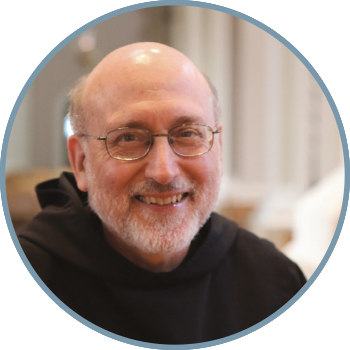 At the time that I professed first vows in 1974, the option was given to monks to retain their baptismal name. Throughout my youth I had always insisted upon being called “Mike.” My mother always addressed me as “Michel,” the French form of the name, after my great-grandfather. Taking the more formal title “Michael” at the time of profession was in fact making a conscious choice of a new identity, a closer association with my patron saint.
At the time that I professed first vows in 1974, the option was given to monks to retain their baptismal name. Throughout my youth I had always insisted upon being called “Mike.” My mother always addressed me as “Michel,” the French form of the name, after my great-grandfather. Taking the more formal title “Michael” at the time of profession was in fact making a conscious choice of a new identity, a closer association with my patron saint.
In his Rule, St. Benedict addresses the prospective monk with words filled with the same military imagery associated with St. Michael: “This message of mine is for you, then, if you are ready to give up your own will, once and for all, and armed with the strong and noble weapons of obedience to do battle for the true King, Christ the Lord” (Prol. 3). These words also invoke the image of St. Michael from the book of Revelation: “Then war broke out in heaven; Michael and his angels battled against the dragon” (Rv 12:7).
Michael is a Hebrew name meaning “Who is like God?,” which is evocative of St. Benedict’s injunction in his chapter on the Instruments of Good Works: “Prefer nothing to the love of Christ” (RB 4:21). The name of “Michael” has been a great source of strength for me in the daily, interior “battle” of renouncing self-will and placing total trust and reliance on God.
– Br. Michael Marcotte, OSB
Growing on Me
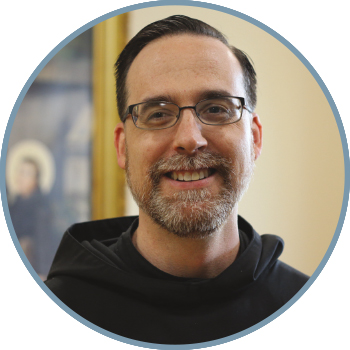 A name can be selected for a novice in two ways. A novice can submit a list of three names to the abbot, or the novice may request the abbot to choose a name. I chose the second option.
A name can be selected for a novice in two ways. A novice can submit a list of three names to the abbot, or the novice may request the abbot to choose a name. I chose the second option.
Abbot Gregory recommended St. Anselm of Canterbury because he was both a Benedictine and a teacher, and also because he had been the patron of Abbot Anselm Coppersmith, who was abbot of Conception Abbey from 1961-70.
One might wonder why I did not submit a list of names to Abbot Gregory. Wouldn’t it be ideal for a novice to choose a patron whom he personally found inspiring? I did not ask myself this question at the time. I was more focused on whether I wanted to commit three years to the monastic life than on who my patron would be. And I knew Abbot Gregory well enough that “St. Rufus” was an unlikely choice.
I don’t remember feeling particularly inspired or dejected by the choice, but my patron has grown on me. St. Anselm loved the monastic life in a remarkably straight-forward way. In his Strangers to the City, Fr. Michael Casey quotes a letter of St. Anselm in which he expresses a confidence in the monastic life that I wish to emulate.
“Let him [the monk] be glad that he has, at last, found a dwelling place, where he can live, not unwillingly, but voluntarily, for the rest of his life. Let him drive away every care about moving and let him make up his mind so that, being at peace, he can give himself only to the careful following of the exercises of a holy and well-tried way of life.”
– Br. Anselm Broom, OSB
Posted in General, Monastery News
